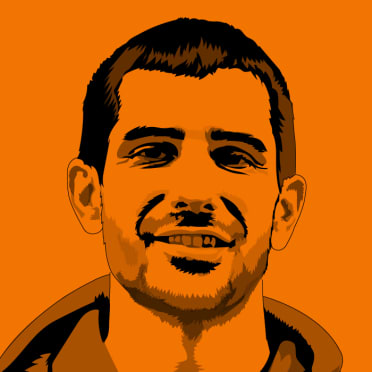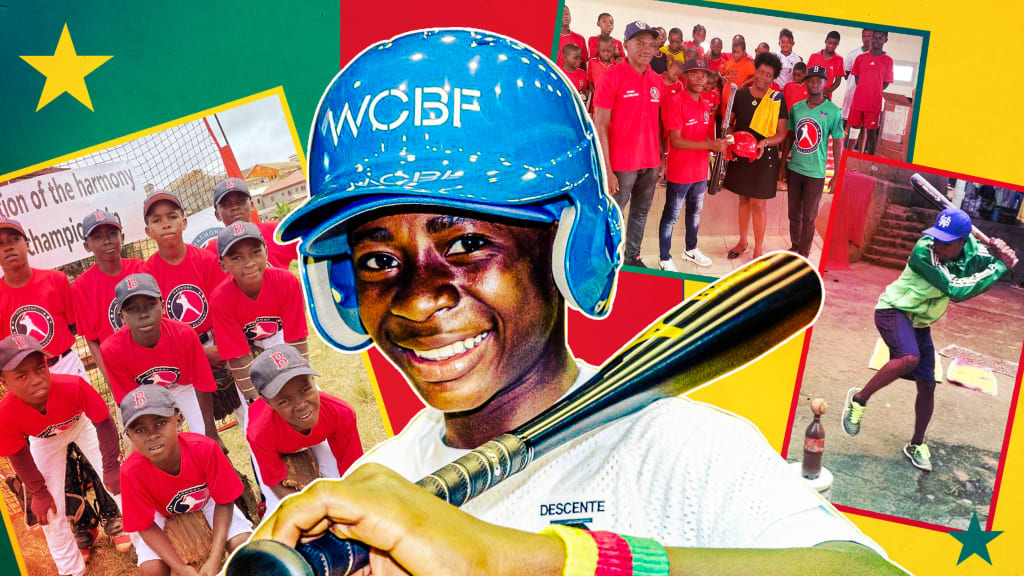
Yaoundé, the bustling capital of Cameroon, is a city of about 2.8 million.
Here, you'll find a robust tobacco and beer industry, a sprawling downtown area and some fascinating architecture. You might also stumble upon a few soccer stadiums or handball pitches or basketball courts (Philadelphia 76ers superstar Joel Embiid is from Yaoundé).
What you won't find are any baseball fields.
Still, what you might find are baseball players.
"We play on soccer fields," Arsel Giowou, the 20-year-old founder of Harmony Baseball Academy, told me over Zoom. "When we have a small space, we can play. We can adapt the space that we have."
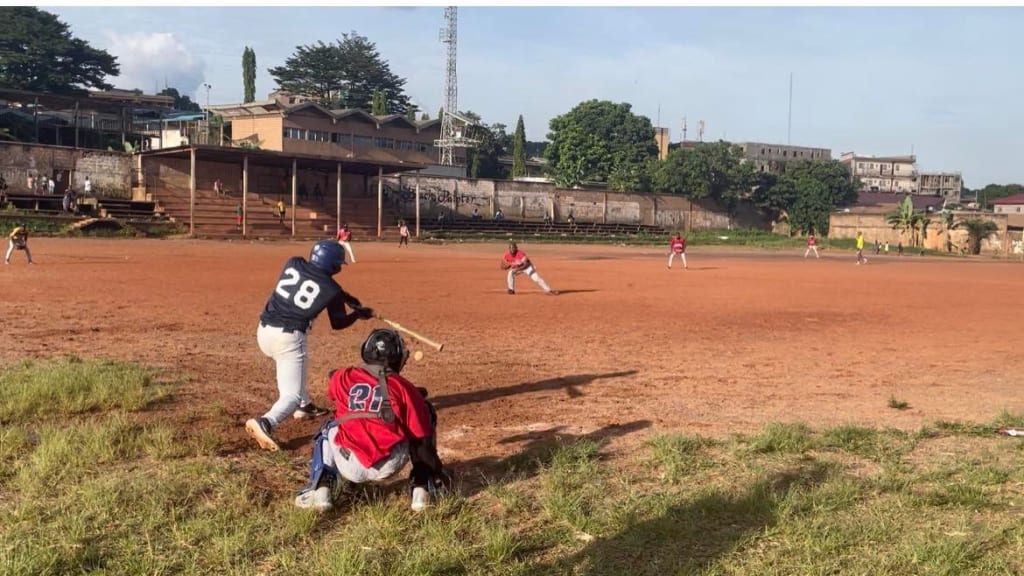
Although baseball isn't as mainstream in Africa as some other regions of the world, it does have a history on the continent.
Some believe the sport first reached the shores of South Africa near the turn of the 20th century, introduced by American missionaries. Uganda has been called the new hotspot for the game -- a team from the East African nation became darlings of the 2015 Little League World Series and knocked off a team from the Dominican Republic. Giancarlo Stanton helped kids with baseball basics in Egypt last month through the Because Baseball program. South Africa had a national team in this year's World Baseball Classic qualifier, and their star, Gift Ngoepe, became the first African-born player to make the Majors in 2017.
"I'm from Africa," Ngeope told ESPN at the time. "Baseball is not a popular sport, but if you work hard enough and dream a little bit, anything is possible."
That seems to be what Arsel Giowou is doing to grow baseball in his home country: "Work hard and dream a little bit."
He was one of the few who grew up playing the game -- participating through the National Institute for Youth and Sports in his elementary school days. Then, in 2013, the 11-year-old was invited to Japan to play in the World Baseball Children’s Fair in the city of Fukui. The non-profit organization, started in 1992 by Hank Aaron and Sadaharu Oh, helps to expand and promote the game to kids who might not have regular access to it in their home countries. Giowou only fell deeper in love in Fukui.
"I was there for one week," Giowou recalled. "It was my first time in a baseball stadium, we don't have those in Cameroon. It was my first time seeing professional players from Japan. It was a really amazing experience."
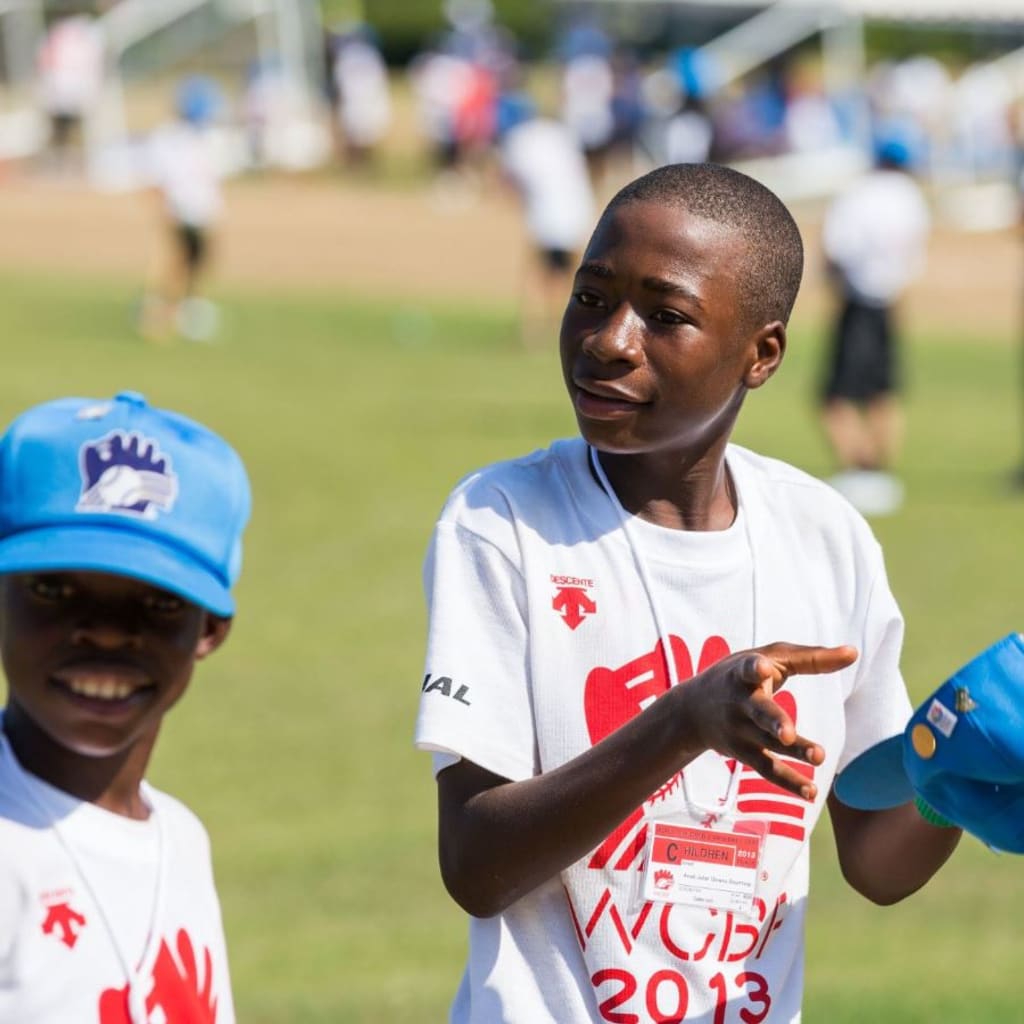
Giowou continued practicing and playing with friends when he returned home -- mostly at the youth and sports institute. But again, it's tough in a country where handball, volleyball, basketball, soccer, cricket and almost every other sport you can think of, are all far more popular than baseball. There's no Little League. There are no stadiums or, really, any legitimate fields. Equipment is hard to come by. It's almost impossible to find on TV.
So, while still in high school, Giowou decided to start his very own baseball academy in 2019. At the age of 17. It's called Harmony Baseball Academy, and as much as its mission statement stresses teaching kids the skills of playing the game, it's also about developing boys and girls into good adults:
Our mission is to provide high quality baseball training to the youth of Cameroon while also providing them with mentorship and purpose to help develop our players into not only high quality athletes, but high quality people.
That latter part is something that Giowou says he latched onto during his time in Japan.
"My goal is to give the same thing the game gave to me to the kids of my community and country," Giowou told me. "I want every kid to be able to play."
What started with 10 kids three years ago has grown to around 60. The players make up six teams and are aged 8-17.
Very active social media accounts, support and promotion from interested parties outside the country and multiple GoFundMe campaigns have helped to keep Giowou's dream going. The Dodgers visited Harmony last February. Billy Bean, Senior Vice President and Special Assistant to the Commissioner, weighed in on Instagram to give some kudos to the organization last summer.
American youth coaches and families (literally selling lemonade out of their front yards) have donated much of the equipment the kids use. There are exercise bands for developing arm strength.
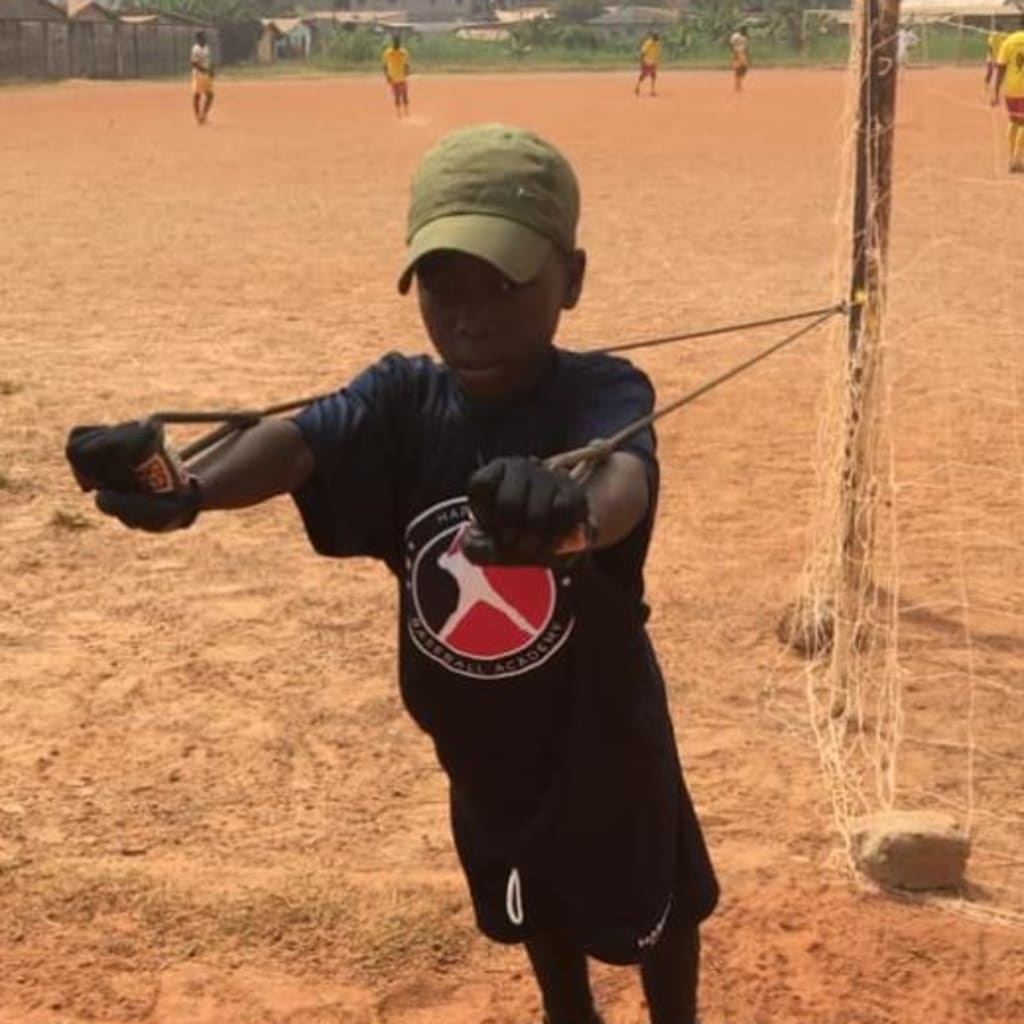
Catcher's gear, for some serious catching faces.
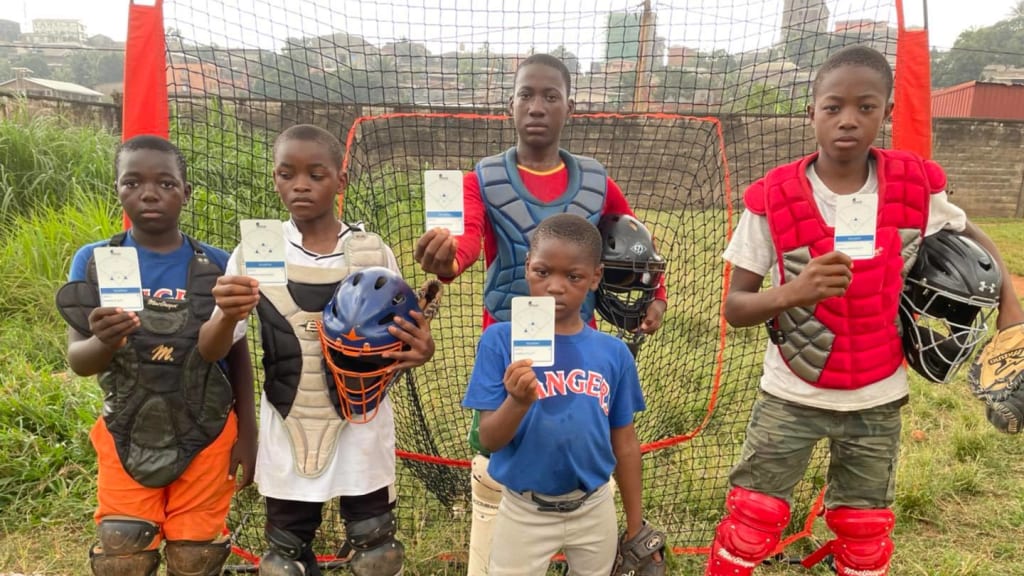
And numerous types and styles of uniforms.
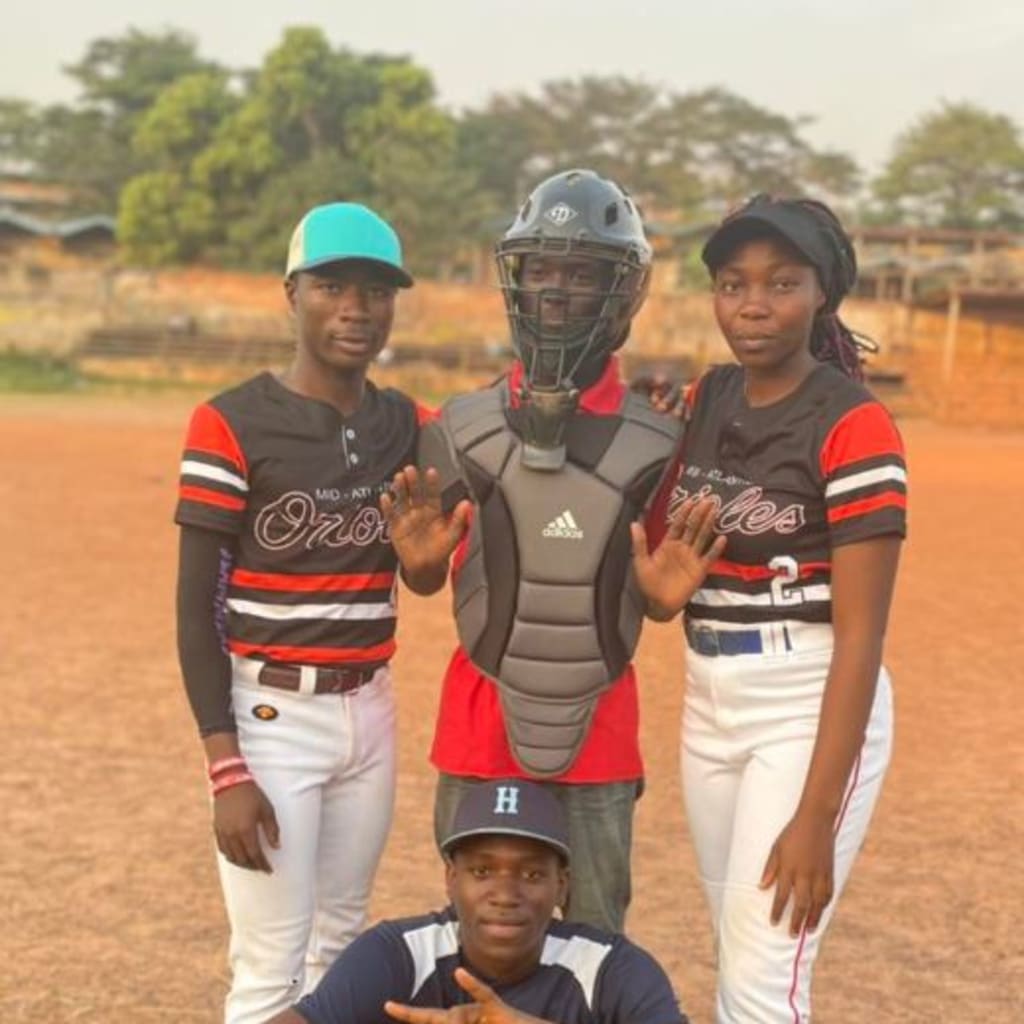
Still, at times, the teams have to improvise with what they have available.
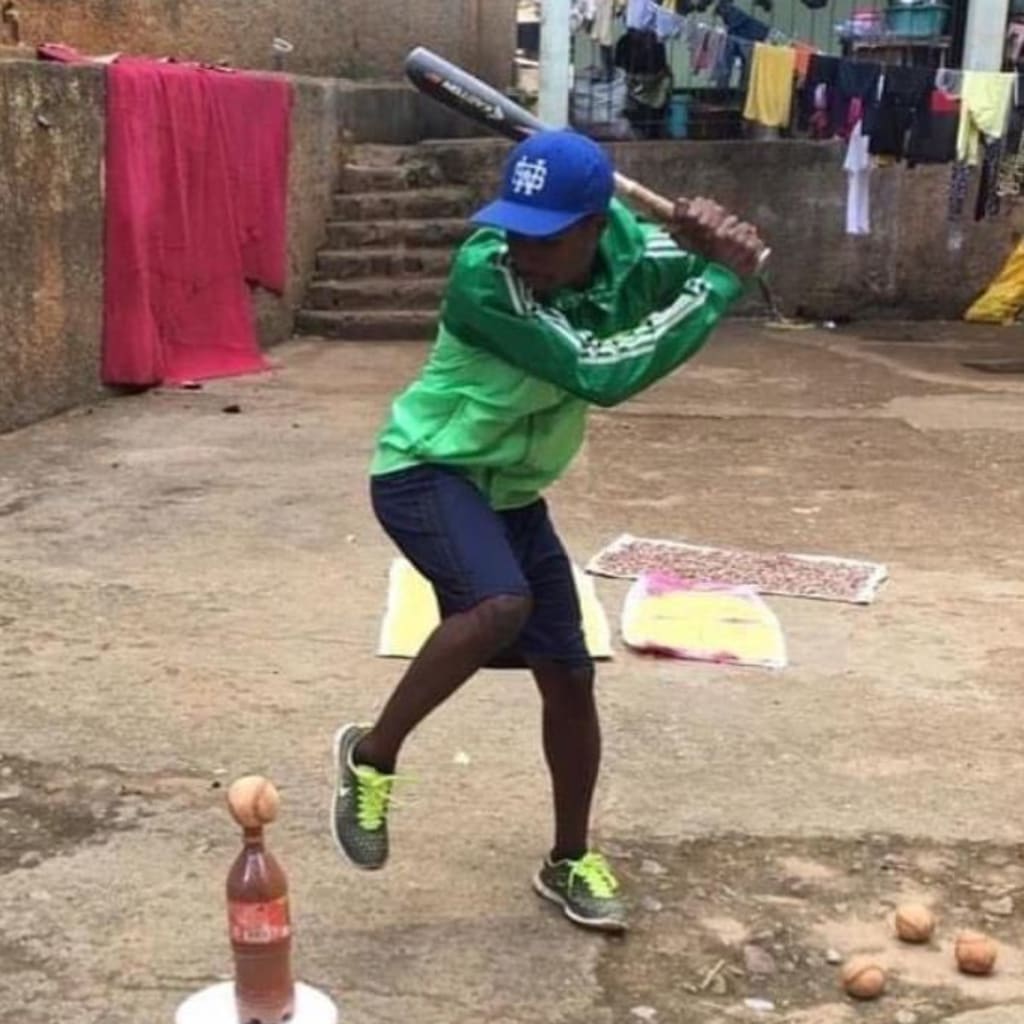
Even without a real field, the teams and players look like something you might see out on any American sandlot. There are celebrations for home runs, big cheers for the littlest guys when they manage to make contact on a hit and controversial calls. There are even wild scenes you might see a couple times per year in a Minor or Major League park.
Although he says he's still not making the big baseball waves he wants to in Cameroon, Giowou's aggressive outreach has gotten him recognition from members of the Cameroon Olympic Committee and Yaoundé's U.S. Embassy. He's also, remember, doing all of this at 20 years old. The WCBF, the program he participated in Japan 10 years ago, even gave Giowou a shoutout in December for his work developing the sport. It's exactly what the Fair was created for in the first place.
Arsel Giowou, from Cameroon, who participated in the 2013 Fukui tournament, has been in touch with us. Currently, as the founder of a baseball school, he is spreading and teaching baseball to children.
Giowou's ultimate goal is to build a ballpark in or around Yaoundé . It helped inspire him when he saw a real stadium in Japan, and he thinks it'll inspire more kids if they can see something similar in their hometown.
"My goal is to have a baseball academy complex where we can teach and give kids an education," Giowou said. "A lot of the kids are poor, they don't go to school, they don't do anything ... [We want] to grow the game in the country, to give opportunities and to give scholarship."
"Never give up," he told me. "Baseball for life."
